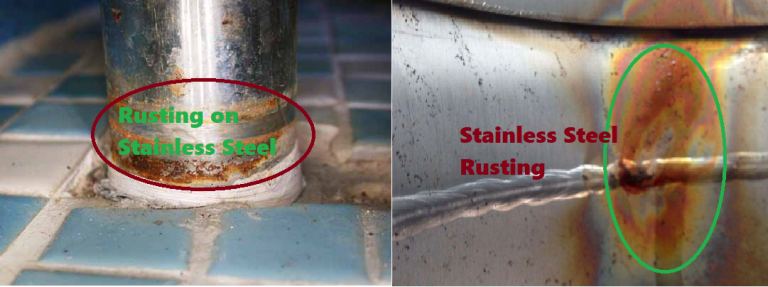
When steel rusts, its iron combines with oxygen and reverts to iron ore, the raw state from which it came.

What keeps this remarkable material, used commonly in kitchen sinks and cookware, from rusting? All steel, that is, except stainless steel. If you own an aging car however, you know firsthand that steel has one annoying problem: it rusts. Talk to the team at ShapeCUT today to find out more.Our modern world, with its skyscrapers, suspension bridges, and automobiles, relies heavily on steel. Consideration in the design and fabrication phase, as well as regular maintenance will limit the likelihood of rust appearing and limit existing rust.Īt ShapeCUT we have real working knowledge of what steel type works the best no matter what type of job it’s being used for. Preventing rust in steel should ideally be undertaken throughout all stages of the steel lifecycle. It can typically be avoided by separating the metals with a non-metallic insulator, such as rubber. It’s where one metal corrodes preferentially compared to another in the presence of electrolyte.
Environmental factors include exposure to damaging chemicals, saline, grease, moisture or heat for prolonged periods of time. Two of the main causes of rust in stainless steel are environment and steel grade. Most stainless steels used in buildings and heavy-duty structures are austenitic (as opposed to ferritic, martensitic and duplex stainless steels) and contain a maximum of 0.15% carbon and 16% chromium, resulting in an incredibly strong resistance Factors that cause stainless steel to rust The higher the Chromium, the stronger the resistance to corrosion. This is unlike iron oxide, which you often see as flaky rust, the chromium oxide cleanly clings to the steel, acting as a protective barrier. Chromium produces a thin layer of oxide on the surface of steel, known commonly as the passive layer.

Stainless steel is an alloy of Iron with a minimum of 10.5% of the mineral Chromium, which is one of the most common elements in the earth’s crust and in seawater. While it may not corrode in the same manner nor at the same speed as conventional steels, under certain conditions it will begin to lose its integrity. Or will it? We believe that stainless steel would be more aptly named “harder to stain steel.” Stainless steel is unique in that it’s strengthened with built-in corrosion resistance, but it’s not foolproof. The word “stainless” is in the name so surely it shouldn’t. We’ve all heard this myth: Stainless steel won’t rust. Warning: count(): Parameter must be an array or an object that implements Countable in /home/shapecut/public_html/wp-content/themes/newshapecut14July2022/header.php on line 239


 0 kommentar(er)
0 kommentar(er)
